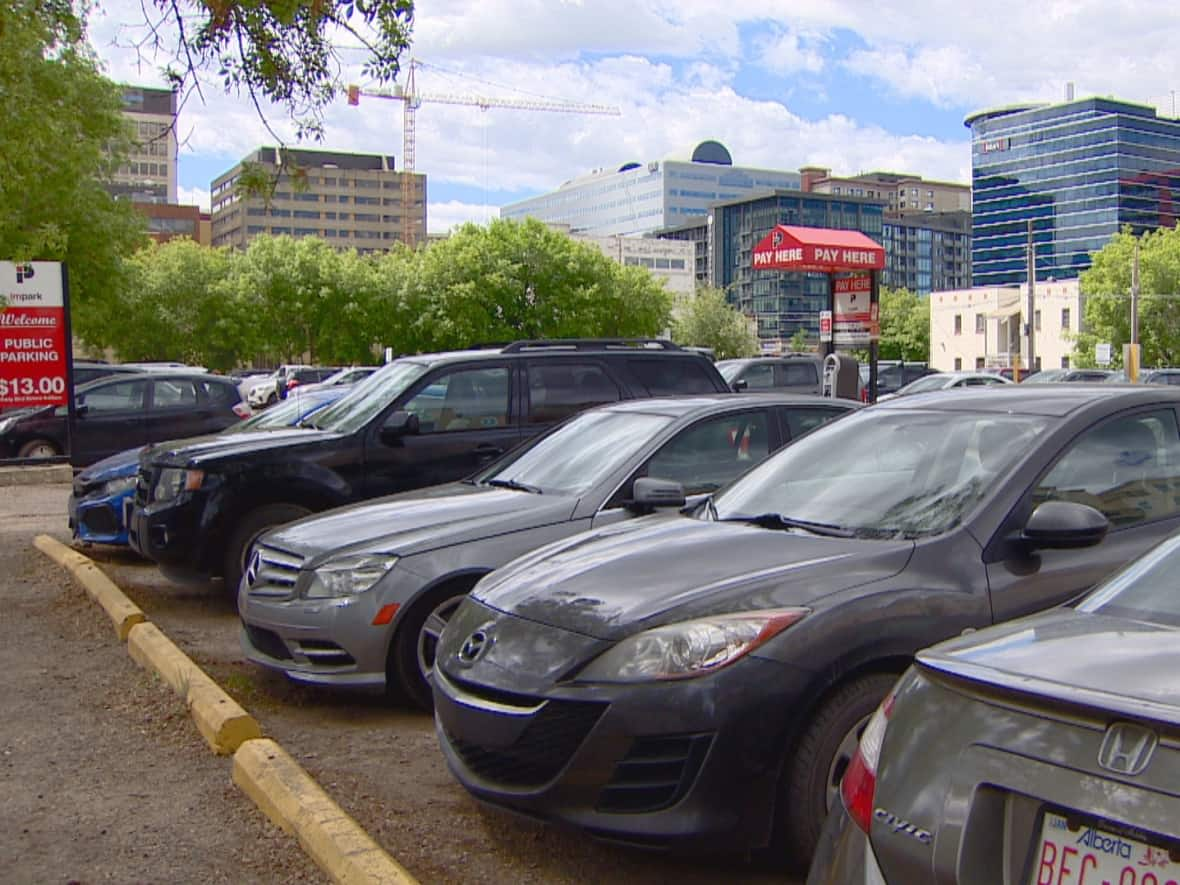Edmonton's automated parking enforcement system years behind, city council hears

The City of Edmonton says 20 per cent of its major projects are behind schedule and one in particular is lagging behind by several years.
City council reviewed the status of the capital projects during a meeting Monday and found that a new parking control system is now 560 per cent behind its original completion date.
The parking system has been in the works since 2015 and was meant to be online by 2019. The technology takes photos of licence plates and tickets are issued based on the plate number.
Coun. Keren Tang noticed the long delay in implementing the new system.
"Is it at risk of becoming a zombie project that keeps dragging on and we just keep delaying it without end in sight?" Tang asked.
The main hang-up is approval from the Alberta government to use the automated parking enforcement system — Access to Motor Vehicle Information Regulation (AMVIR).
Gord Cebryk, branch manager of city operations, said the bulk of the project was completed two years ago.
"We can't actually start doing the automated enforcement until we have the approval from the province, so we have been pursuing that," Cebryk said.
Calgary ahead on enforcement
Calgary started using automated enforcement about 10 years ago, Cebryk said. Instead of developing its own system, Edmonton was going to use Calgary's.
"The practice of licence plate-based recognition for parking was state of the art and it's still one of the leading industry methods for that," Cebryk said about Calgary's system.
A financial update shows the Edmonton project faced a number of delays early, including a delayed request for proposals while the city investigated the potential to partner with the City of Calgary.
Edmonton needs to have its own approval, independent of Calgary, Cebryk said.
Council agreed the mayor should write a letter asking the province to let the city use the automated enforcement technology.
Coun. Michael Janz said the automated method would be a chance to reassign bylaw officers from writing manual parking tickets to tackling other important municipal issues.
"We have more than enough bylaw work to go around in our city," Janz said. "This is just a way we can serve people better while freeing up people to go and deal with some of the many other challenges that we have."
The project is listed as being on budget at $14.6 million.
In a statement to CBC News, a Service Alberta spokesperson said the ministry had received the city's application but said no municipality is approved to use the technology.
Brett Farrell, press secretary to Service Alberta Minister Nate Glubish, said the ministry has asked the City of Calgary to stop using automated parking enforcement because its use has not been approved by the current government.
"As more jurisdictions across North America embrace technology to modernize their enforcement operations, it is important to ensure privacy protections are in place," Farrell said.
"Our government works closely with Alberta's privacy commissioner and will be doing so regarding this information as well.
"We have been keeping the City of Edmonton apprised of the situation and look forward to working alongside them to enable their use of technology in a responsible manner that protects Albertans' privacy."
Smart fare, LED streetlights behind schedule
Other projects behind schedule include an LED streetlight conversion, which is nearly 50 per cent behind its original completion date.
The project is lagging because of supply issues related to the COVID-19 pandemic, but the city report shows designs and installations are moving ahead at a steady pace now with the project forecast to be complete in 2024.
The transit smart fare system, called Arc, is nearly 30 per cent delayed.
The city said it started testing the standard adult fare group in January this year, and anticipates it will be available to senior, student and youth riders in 2023.
The majority of capital projects are on budget — 98 per cent are within the acceptable budgetary guidelines, the report said.


